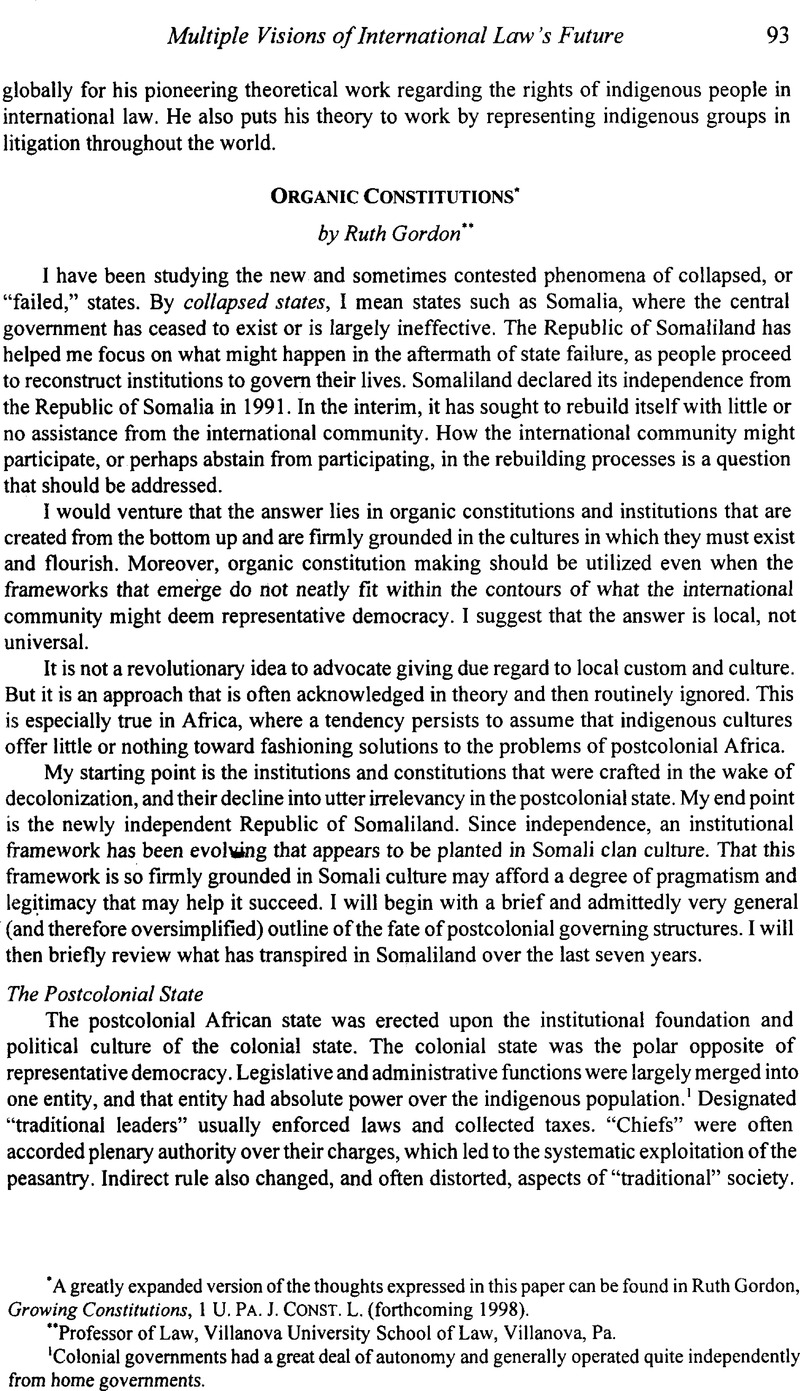No CrossRef data available.
Published online by Cambridge University Press: 28 February 2017

A greatly expanded version of the thoughts expressed in this paper can be found in Ruth Gordon, Growing Constitutions, 1 U. Pa. J. Const. L. (forthcoming 1998).
1 Colonial governments had a great deal of autonomy and generally operated quite independently from home governments.
2 Of course, I am talking about what would arise after humanitarian crises are taken care of and fighting ceases.
3 If circumstances arise that prevent state bodies from performing their national duties, the Council of Elders can convene a conference, which includes all of the communities of Somaliland. This conference then determines the political measures needed to resolve outstanding problems.
4 On various forms of accountability, see Chibundu, Maxwell, Law in Development: On Tapping, Gourding, and Serving Palm Wine, 29 Case W. Res. J. Int’l L. 169 (1997)Google Scholar.